
The collection begins with a selection of poems from Charlotte, and many of these poems are bogged down in narrative, poetic prose, but the meaning of the poems are not completely obscured. In fact, the selection of poems offer a sense of longing and despair topped with a current of optimism and rays of hope. In “Mementos,” Charlotte alludes to the precious nature of material objects, which even though tied to loved ones, are now moldy and dusty — long forgotten.
“Once, doubtless, deemed such precious things;
Keepsakes bestowed by Love on Faith,
And worn till the receiver’s death,
Now stored with cameos, china, shells,
In this old closet’s dusty cells.I scarcely think. for ten long years.
A hand has touched these relics old;
And, coating each, slow-formed, appears,
The growth of green and antique mould.” (page 7, “Mementos”)
However, while Charlotte tells a unique story in each poem there is an emotional detachment even though the images and story tackle harsh topics and delve into questions of mortality and loss. Charlotte’s poems about her deceased sisters, Anne and Emily, are more emotionally present, though the loss of Anne seems more substantial to her.
The next set of poems are from Patrick Brontë. His poems weave a sense of loneliness, and not just a passing sadness and solitude, but a loneliness that weighs down the narrator. From “Memory,” “Winds have blown, but all unknown;/ Nothing could arouse a tone/ In that heart which like a stone/ Senselessly has lain.” to “Oh, All Our Cares,” “But here this lonely little spot,/ Retires among its trees,/ By all unknown and noticed not,/” there is an emptiness in Patrick’s poems that is deeper than that in expressed by his sisters. Camaraderie between the sisters must have been tough for a brother to penetrate, and to seek help from his sisters with his writing may have been a bridge he was unwilling to cross. Regardless, his poems are no more poignant and enlightening about the human condition than those of his sisters.
Emily Brontë’s poetry is possibly the most well known of the siblings work, and her poems tend to be well crafted, adhering to style elements known for the forms she has chosen. Her rhyme schemes are cleaner than her siblings, but her style is often dense and fantastical. She blurs the lines between reality and a fantasy world she creates. In some ways, readers may find that her poems are hard to decipher if they get too bogged down in the details she throws into each line.
“Will the day be bright or cloudy?” (page 39)
Will the day be bright or cloudy?
Sweetly has its dawn begun,
But the heaven may shake with thunder
Ere the setting of the sun.Lady, watch Apollo’s journey,
Thus thy firstborn’s course shall be —
If his beams through summer vapours
Warm the earth all placidly,
Her days shall pass like a pleasant dream in sweet tranquility.If it darken, if a shadow
Quench his rays and summon rain,
Flowers may open, buds may blossom,
Bud and flower alike are vain;
Her days shall pass like a mournful story in care and tears and pain.If the wind be fresh and free,
The wide skies clear and cloudless blue,
The woods and fields and golden flowers
Sparkling in sunshine and in dew,
Her days shall pass in Glory’s light the world’s drear desert through.
Anne Brontë’s poetry is more childlike in its reverie with nature and the memories and emotions those things can arouse in the narrator. Her poems are immediate and easy to comprehend; readers can connect with her more easily than her siblings’ poems. However, her poems do not differ from theirs in subject matter; she tackles not only loneliness, longing, and emptiness, but also happy moments encapsulated in time and memories. From “The Bluebell,” “Yet I recall, not long ago,/ A bright and sunny day:/ ‘Twas when I led a toilsome life/ So many leagues away.” (page 74), and from “The Captive Dove,” “Poor restless dove, I pity thee;/ And when I hear thy plaintive moan,/ I mourn for thy captivity,/ And in thy woes I forget mine own.” (page 80).
Overall, The Brontës by Pamela Norris is an excellent selection of poems that displays the diversity of the Brontës and their similarities. Norris’ introduction can help readers understand the dynamics of the family, but the poems often speak for themselves about the depths of their loneliness and desolation. However, some members of the family were more desolate than others and others coped by relying on fantasy and memories of happier times.
This is my 1st, and probably, only book for the 2010 All About the Brontës Challenge.
This is my 60th book for the 2010 New Authors Reading Challenge.
This is my 15th book for the Clover Bee & Reverie Poetry Challenge.
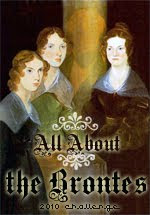
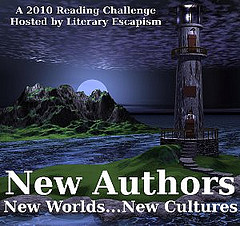
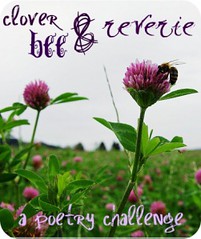
 Tipping Point by Fred Marchant is a collection of poetry broken down into five parts and published by Word Works after winning the 1993 Washington Prize. Readers may wonder what a former Marine Corps Lieutenant and one of the first honorably discharged conscientious objectors would have to say about the Vietnam War, especially having only served two years. This collection is a journey through the memories of childhood, adulthood, and military service, and beyond.
Tipping Point by Fred Marchant is a collection of poetry broken down into five parts and published by Word Works after winning the 1993 Washington Prize. Readers may wonder what a former Marine Corps Lieutenant and one of the first honorably discharged conscientious objectors would have to say about the Vietnam War, especially having only served two years. This collection is a journey through the memories of childhood, adulthood, and military service, and beyond.








 Unincorporated Persons in the Late Honda Dynasty by
Unincorporated Persons in the Late Honda Dynasty by 
 Diana M. Raab‘s The Guilt Gene is a collection steeped in nostalgia that fails to glorify the past. The collection is broken down into six sections: “Cherry Blossoms, Book Tour, Two Evils, The Devil Wears a Poem,
Diana M. Raab‘s The Guilt Gene is a collection steeped in nostalgia that fails to glorify the past. The collection is broken down into six sections: “Cherry Blossoms, Book Tour, Two Evils, The Devil Wears a Poem,  The Wrong Miracle by Liz Gallagher uses tongue twisting phrases and juxtaposition to shed light on and deal with the expectations of family and society. Wrong miracles occur everyday in Gallagher’s world from the cat that drags in a poem it found to a breeze that cracks the narrator open. Gallagher’s playful phrases will have readers smiling in amusement, and she enjoys turning cliches upside down.
The Wrong Miracle by Liz Gallagher uses tongue twisting phrases and juxtaposition to shed light on and deal with the expectations of family and society. Wrong miracles occur everyday in Gallagher’s world from the cat that drags in a poem it found to a breeze that cracks the narrator open. Gallagher’s playful phrases will have readers smiling in amusement, and she enjoys turning cliches upside down. About the Poet: (Photo Credit: Vladi Valido)
About the Poet: (Photo Credit: Vladi Valido)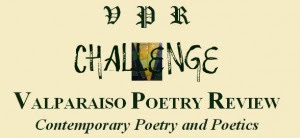
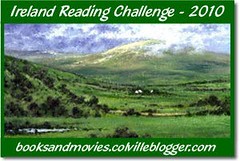




 I’ve read 9 out of 12 books for this challenge. Check them out
I’ve read 9 out of 12 books for this challenge. Check them out 


 I’ve read 2 out of 6 vampire books from any series. Check them out
I’ve read 2 out of 6 vampire books from any series. Check them out 




